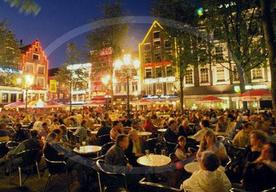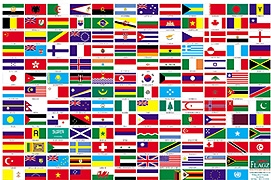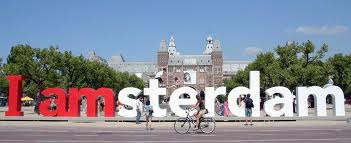The mission of the cooperation is to promote and maintain optimal communication and contacts between the members of Corps Consulaire � Amsterdam and to develop good relations between the members of Corps Consulaire � Amsterdam and official Dutch authorities in order to promote the successful fulfilment of their responsibilities

The title Consul is used to describe the official representative of one state in the territory of another, normally acting to assist and protect the citizens of the consul's own country, and to facilitate trade and friendship between the people of the country to whom he or she is accredited and the country of which he or she is a representative. Consuls further the development of commercial, economic, cultural and scientific relations between the sending State and the receiving State and otherwise promote friendly relations between them. There may be several Consuls, one in each of several main cities, providing assistance with bureaucratic issues to both the citizens of the consul's own country travelling or living abroad, and to the citizens of the country in which the Consul resides who wish to travel to or trade with the Consul's country.
The office of a Consul is termed a Consulate. A Consul of higher rank is termed a Consul General (CG), and his or her office a Consulate General. There are also Deputy Consuls General, Consuls (C) and Vice Consuls (VC). Consuls of various ranks may have specific legal authority for certain activities, such as notarizing documents. Aside from those outlined in the Vienna Convention on Consular Relations, there are few formal requirements outlining what a consular official must do. For example, for some countries, consular officials may be responsible for the issuance of visas; other countries may limit "consular services" to providing assistance to compatriots, legalization of documents, etc.
The activities of a Consulate include protecting the interests of their citizens temporarily or permanently resident in the host country, issuing passports to citizens and issuing visas to foreigners and also public diplomacy. In addition, another principal role of a Consulate has traditionally been the promotion of trade and provision of assistence to companies seeking to invest and to import and export goods and services both to their home country and to their host country.
Some Consuls are not career officials (career consul) of the represented state at all. Such a Consul (Honorary Consul) may well combine the job with his or her own (often commercial) private activities, and in some instances may not even be a citizen of the sending country.

I Amsterdam
The official Amsterdam Tourist Board website provides all the information you need to plan a trip to Amsterdam.
Amsterdam Tourism & Convention Board (ATCB)
ATCB is the organization in the field of tourism and conventions in the Amsterdam Metropolitan Area. Through promotion, information, research and tailor-made service, ATCB promotes tourist and business visits and hence creates a strong foundation for employment and prosperity in the Amsterdam Metropolitan Area.
Stichting Amsterdam Tourist Assistance Service (ATAS)
The foundation ATAS provides free assistance to foreign tourists during their holiday in Amsterdam who have become victims of a crime.

821.752 inhabitants
2.480.000 inhabitants Greater Amsterdam
180 nationalities
1 mayor
881,000 bicycles
1.000.000 trees
600,000 bulb flowers in parks and public gardens
30 parks
227 city trams
13 ferryboats
27 markets
1 Flower Market
5.432 shops
165 antique shops
24 diamond polishing factories
165 canals
1,281 bridges
8 wooden drawbridges
1 Skinny Bridge
110 glass-topped canal boats
2,500 houseboats
8,863 16th, 17th and 18th century buildings
654 historic gable stones
1 Royal Palace
302 statues and sculptures
6 windmills
51 museums
141 art galleries
22 paintings of Rembrandt
1 Night watch
206 paintings of Van Gogh
1 Civic Guard Gallery
140 wax statues at Madame Tussauds
6,100 animals at the Artis Zoo
4 barrel organs
9 carillons
42 historical church organs
16,000 concerts and theatrical performan�ces
40 concerts and theatrical performances per day
55 theatres and concert halls
1 Royal Concertgebouw Orchestra
1 Muziektheater
61 cinemas
1,252 cafe's and bars
36 discotheques
1,252 restaurants
43.146 hotel beds
5 camping sites
8,600,000 bed nights by tourists from abroad
13,800,000 day visitors
